Top image: Helen Huang / RICE file photo
“Regardless of race, language, and religion” is a line I raise an eyebrow at every morning in my junior college, a particular institution that’s pretty much the academic holy grail for every kiasu Singaporean parent.
As I pledge the line daily, I lose faith in its truth more and more.
Its meaning becomes clouded upon scanning the people in the courtyard. Even when there is some diversity, it doesn’t feel safe. It’s hard to keep your guard down when you’re repeatedly exposed to offhand remarks about one’s race.
If it weren’t students casually saying the n-word and uttering derogatory terms toward Indians, it would be much worse.
At an out-of-school event, a schoolmate was talking about eugenics. He said: “It doesn’t matter what financial situation they’re in, Malays would still reproduce”. People flamed him (and rightly so), but at the end of the day I’m still sharing spaces with people like him. Did I need to have a mental blacklist of racists in my school?
Internalising that statement in the national pledge somehow feels like swallowing a jagged pill. If it’s law, why does it feel arguable? And if it’s a principle, why does it feel forced?
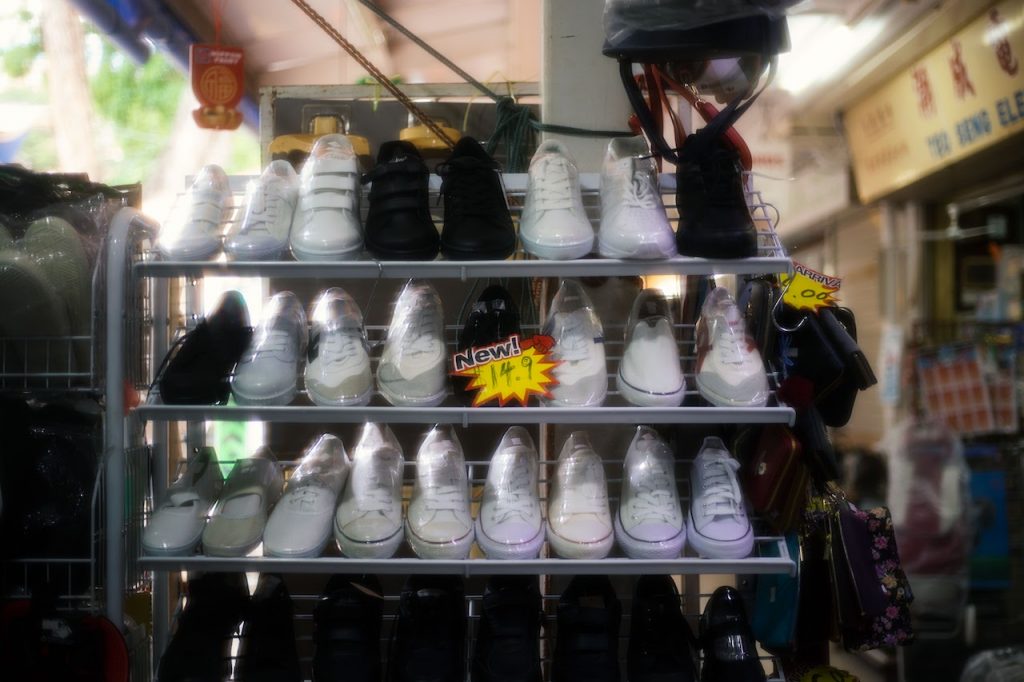
Navigating the corridors of a school like mine can be daunting for those who feel scrutinised for their race, language, and religion. The simple act of moving through a space can be exhausting when you’re not sure if fellow students are gawking at you or avoiding you because there’s so little of your people represented here.
The weight of uncertainty about others’ perceptions is real and, honestly, exhausting.
Being a Malay-Muslim student in a prestigious JC located in the heart of Singapore, perhaps I can advise fellow minority students in elite schools.
Tip #1: ‘Don’t stand out’
When you’re a minority in Singapore, you’re bound to have a different life from the majority community. Your circle of friends, for example, will be vastly different depending on where you grew up, who your family knows, or where you went to school.
In a local school with smart, competitive people who prioritise grades above all else, it’s common to find students with little to no exposure to other communities growing up. It could be no fault of theirs, considering that the sharpest social divisions in Singapore are based on class, which is itself connected to racial lines.
Being a minority feels like an inconvenience. I thought my race would only play a part in my NRIC. Since secondary school, people don’t really keep their prejudices to themselves.
“You’re in the Express stream? Oh, that’s surprising.”
“Thanks, nice to meet you too.”
Hence, when you’re one of the few from your community in a big, top-tier school, representation shifts from pride to obligation. A mother tongue teacher in secondary school once said: “Make our community proud and set a role example for the people of your ethnicity. You’re doing big things”.
Well, okay. A lot of pressure for a teenager.
In a prestigious JC, you become extra conscious of your actions and words—because there’s so little representation, you inadvertently become the face of your race.
You certainly don’t want to bring shame to your ethnicity because you’re boisterous. You are the ‘model minority’, the cream of the crop of your race. There’s little room to make mistakes like a teenager. Now, smile for the picture (you’re there to add diversity)!
Hence the paradox—make your community proud by maximising your potential but don’t stand out at the same time. As a triangle in a school of squares, best to keep your edges sharp without so much of a blemish.
In your formative years, casual observations about your race can change a growing teen’s perspective. A friend, a Singaporean Indian, recalls her first brush with internalised racism. It was Deepavali, and Indian dancers were performing on the school stage. Her classmates were mocking them.
“At that point in time, I wasn’t thinking of defending my people and culture,” she says, embarrassed. “I just felt really ashamed that I was one of those people they were making fun of.”
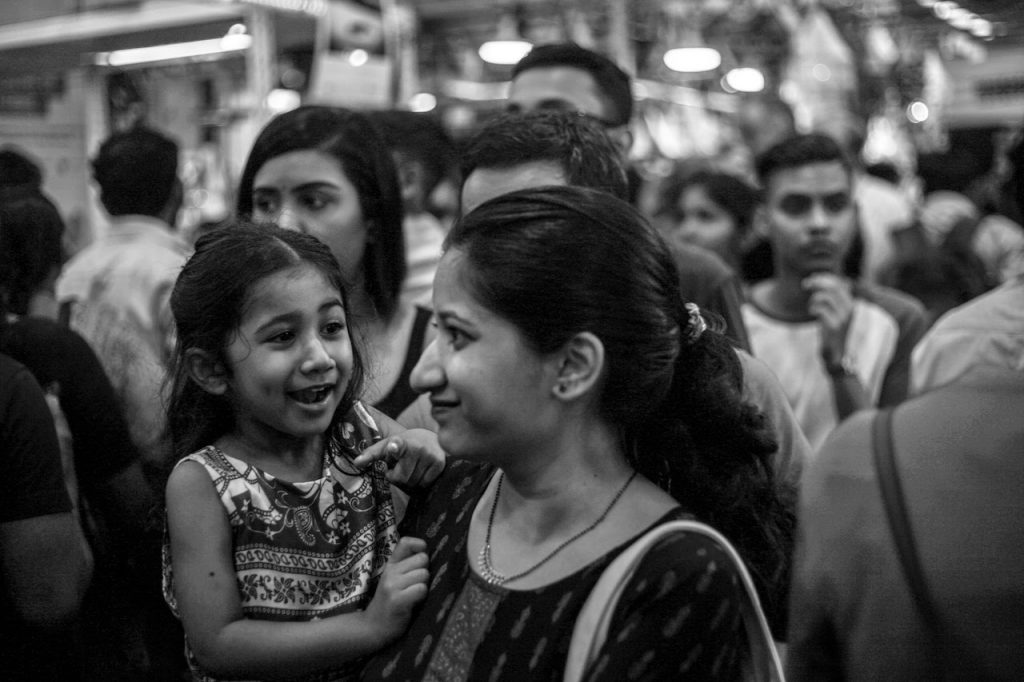
Rejecting associations with your own race is a reality for minority students. At the start of JC, I made the conscious decision to rid myself of the label ‘Malay-Muslim’.
I’d be hyper-aware of various stereotypes attached to that term. Words like ‘lazy’ and ‘complacent’ seem outrageous, though you’d be surprised at how fast others immediately come to conclusions upon seeing my face.
I refrained from joining Malay clubs and programmes. I participated in activities that aligned more with mainstream interests, like Western pop culture. I altered the way I spoke English. It got so extreme that I wouldn’t visit the mosque for religious events.
I convinced myself, “I’m not like that. I’m my own person”. It was harrowing to detach myself from something while knowing that I could never conform to the majority, either.
It was simply too tiring to balance avoiding perpetuating negative stereotypes but also figuring out your own identity like, you know, a normal teenager.
Tip #2: ‘Don’t be so sensitive’
Make sure you don’t think too much of certain remarks or certain actions, or it’ll ruin your entire day.
I don’t know how to react when my peers speak to me in a caricatured Malay accent. How do I react when someone says they were surprised I “could count to 50”? Or if I would be “getting a teenage pregnancy”?
Their defence would be, “Well, if someone made racist jokes about my race, I wouldn’t be offended”.

You can argue a myriad of excuses for ignorant people. Was it their upbringing or their home environment? The possibility that they were racist becomes an uncomfortable area to navigate. In most cases, race was an issue.
My friend reflected once on going to a birthday party: “One effect of racism in Singapore is that I become very conscious of meeting the families of friends. I get scared whether they’d think I was someone their children should be friends with.”
“There was one instance where a friend’s mum said I made her room smelly. And I never went back to her house after that. I don’t know if I felt disrespected.”
Unwarranted prejudices come hand-in-hand if you’re a minority student growing up in Singapore. Somehow, my neighbour simply refused to accept that I was studying in [REDACTED] Junior College and not in a polytechnic or ITE. She asks me the same question every time I see her.
It became more salient to me as a growing teenager in an elite school that I had to prove myself academically or beyond that ‘I am not just my race’. It’s something that non-minority students don’t have to worry about at all.
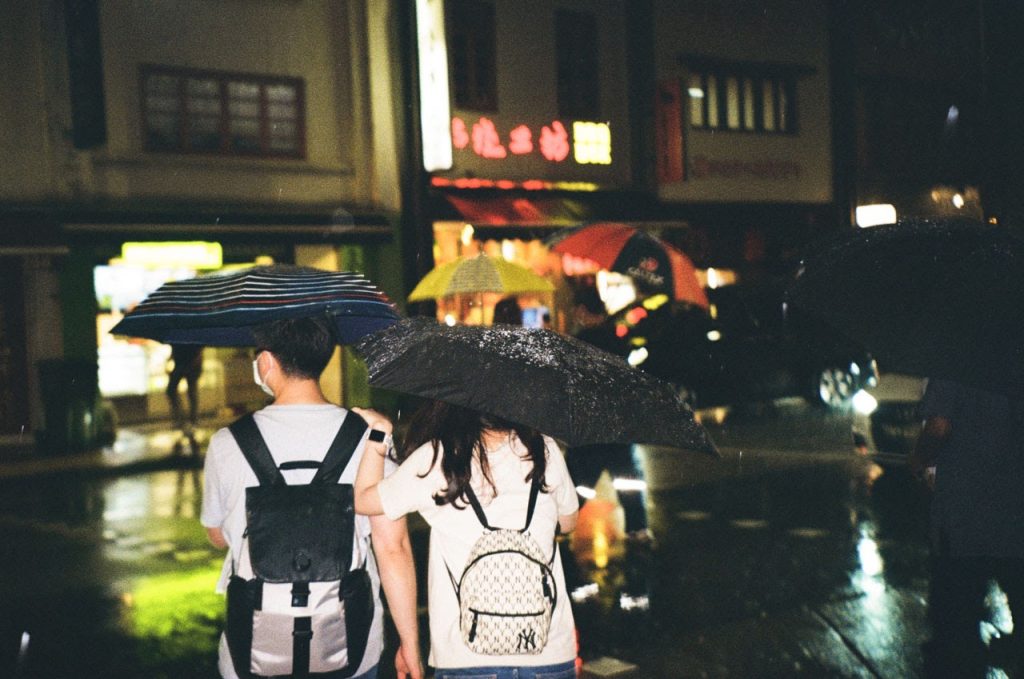
Sensitivity comes into play in the context of interpersonal relationships at school. Guys used to say to girls like me: “Not to be offensive, but I wouldn’t date a Malay or an Indian girl. That’s just personal preference”.
My friend vented about the dating scene among Singaporean students.
“I’m not an experiment, I just wanted to experience the life of an average person from the majority race in Singapore. I didn’t want to be exotic, and I didn’t want to be ashamed of people and my race.”
But of course, whenever we try to confront these things, we’ll be told: “Eh, don’t be so sensitive lah”. Which brings me to the next tip.
Tip #3: ‘Don’t speak out’
For how racially blind Singaporeans like to portray themselves, we place quite a bit of emphasis on the racial binary.
In school, conversations about race—usually held about once a term—can be a bit tricky. Only authorised figures are encouraged to start discussions about race. Its environments are also heavily monitored. For instance, Civics and Character Education classes.
Sometimes, when my teacher uses the latest government-approved buzzwords to generalise how all minority students feel about racism, I try not to laugh. What do vague terms like ‘common spaces’ and ‘tolerance’ mean for minority students?
With such ambiguous and mild terms, it’s hard to get to the crux of the discussion—enmity and ignorance. We try so hard not to make anyone feel accused of racism that these fluffy words offer no concrete confrontation or solution.
To those who do feel accused, I offer a Malay idiom: ‘Siapa makan cili, dia rasa pedas’ (He who bites the chilli will feel the heat).
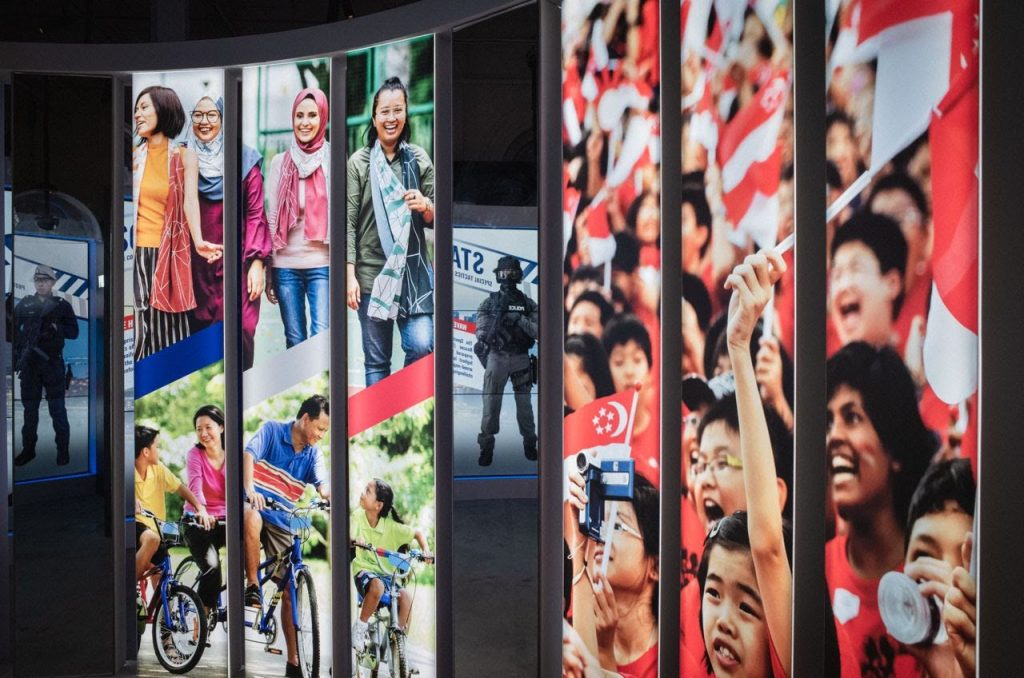
What I’m trying to say is that there is little organic space for conversation about race to be had in schools—especially elite institutions where honest discussions about racism are needed. When prejudices are packaged as ‘different perspectives’ and segregation is normalised as ‘cliques’, the road to breaking out of social bubbles is narrow. If place and time are restricted, this doesn’t create a constructive space to talk, but subdues voices that need to be amplified.
Almost like a rite of passage to becoming a minority in Singapore, you make the decision to either self-segregate and stick with other non-Chinese people or become ‘more likeable’ to get along with the majority race.
If you’re a minority student, it’s much more likely that you’ll be friends with other minority students. That sense of comfort and familiarity in a homogenous environment feels like a safe space where discrimination can’t infiltrate.
Talking about my lived experiences is not ‘identity politics’. Talking about my experiences is not ‘playing the race card’. I’m a student who wants to be heard, just like you.
Tip #4: F*ck It
Silencing discussions about racism and tiptoeing around sensitive topics do nothing for minority students. So the final tip: To hell with playing the docile role of a model minority.
Why must the onus of accommodation fall on minority students? We shouldn’t feel compelled to assimilate. True progress lies in seeing people as people, not race first and name second.
Overcoming outdated mindsets is the way to go. What is wrong is creating a framework that splits students into racial categories and imposes different expectations upon them.
My silence doesn’t serve your comfort. It is uncomfortable, but being bothered is to grow. Minority students shouldn’t feel like shit just so that society can go its way and leave their prejudices unattended.
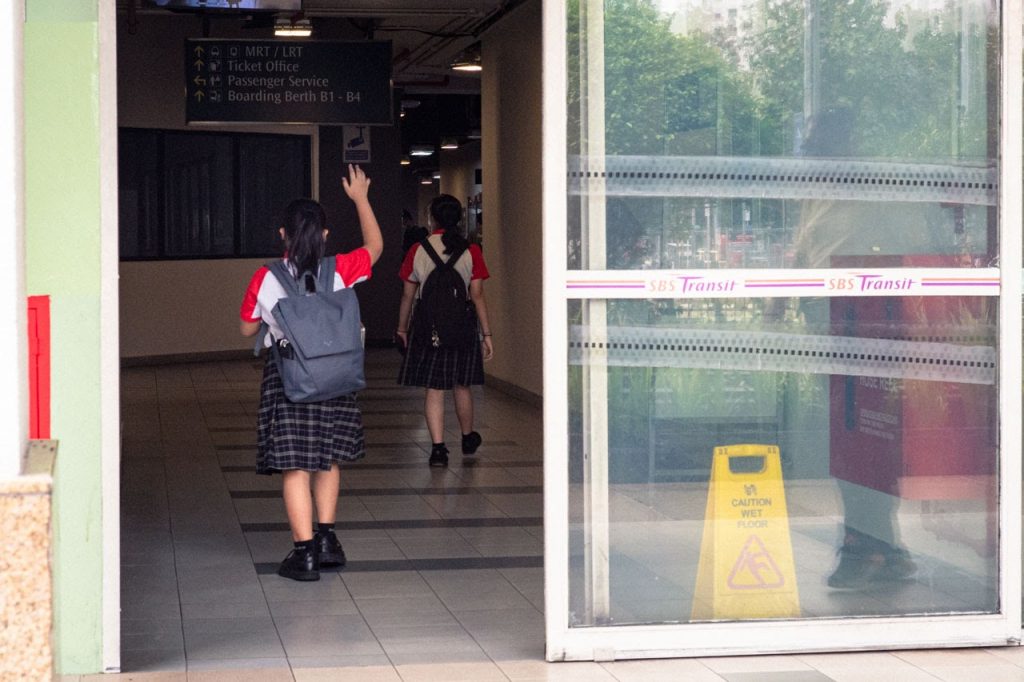
In some sense, this shouldn’t be a surprise. It’s understandable to feel like a token minority because racial demographics at elite schools are so disproportionate in the first place.
Elite schools are distinguished by their academic performance. The location of a JC accounts for neighbourhood wealth that amplifies its elite status.
Patterns of educational inequality between gender and ethnic groups are reinforced by neighbourhood wealth. The interplay between social and spatial factors shapes such inequalities, combined with permanent differentiation like grade requirements for enrolment.
The result is that less affluent groups may face difficulties gaining admission to elite JCs. Reasons for such include educational resources in their neighbourhoods, socio-economic status, or limited knowledge about the admission process.
The disproportionate presence of a majority race or a particular socio-economic background in elite institutions only reinforces stereotypes or biases. Consequently, this solidifies the cycle of minority students being affected by systemic inequalities. Students in environments with minimal minority representation inadvertently ‘otherise’ minorities.
It’s quite understandable, but should it be? Within elite school settings, racism—deliberate or not—will continue to persist without regular interactions or meaningful engagements with individuals from different backgrounds.
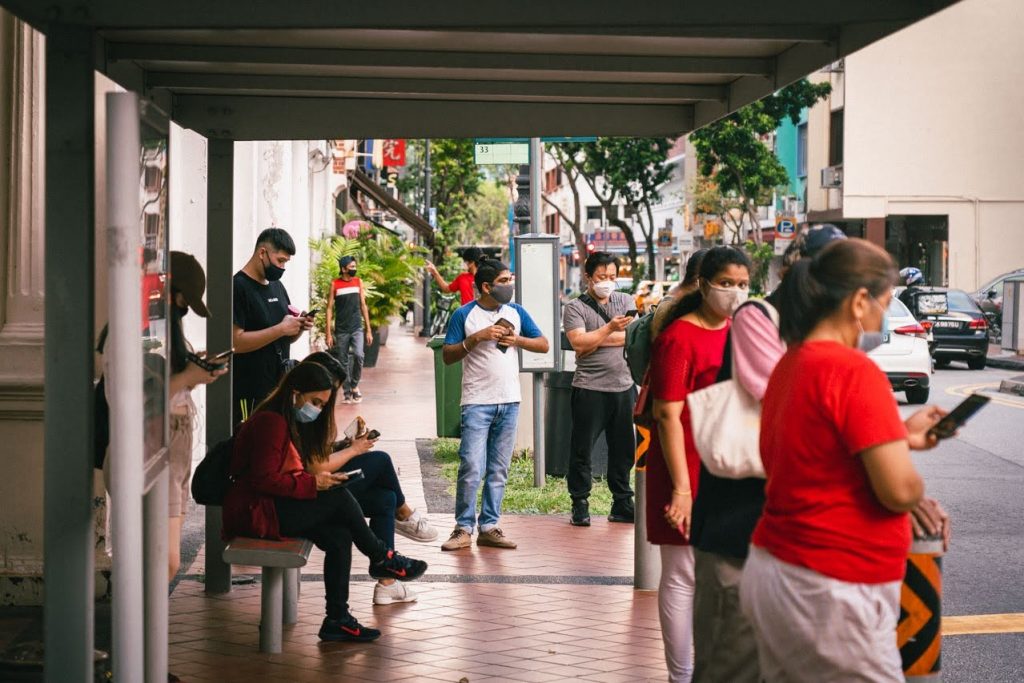
It Never Ends
Race carving out the path of students going through their schooling years is not breaking news. ‘It’s already a privilege to be tolerated’ is the vibe I get when I read the constant stream of news of adults being racially discriminated against here.
The paradox of societal ideals and lived realities marks the experience of being a minority in an elite school. The path of a minority student is a multifaceted journey; it is a burdensome one. We need genuine introspection and collective effort toward an educational landscape that celebrates diversity.
If I’m already feeling this way as a 17-year-old, here’s a question: does it get any better when you grow up?






